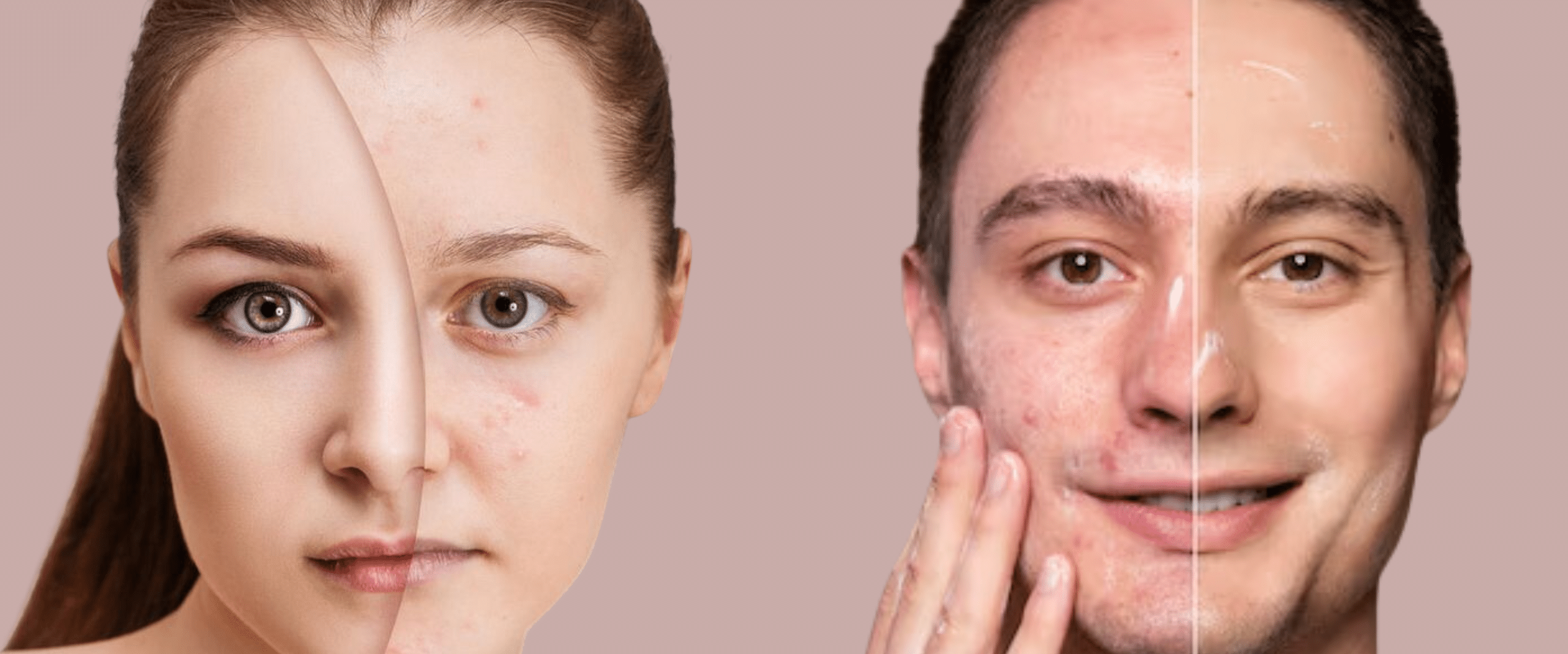
Acne is a common skin condition that can affect people of all ages. It occurs when hair follicles become clogged with oil and dead skin cells, leading to the formation of pimples, blackheads, and whiteheads. While acne is not a serious health condition, it can cause emotional distress and affect self-esteem. There are many acne treatments available to help manage the condition and improve the appearance of the skin.
Overview of Acne Treatment:
- Topical Treatments: These are applied directly to the skin and can include retinoids, benzoyl peroxide, and antibiotics. They work by reducing inflammation, unclogging pores, and killing acne-causing bacteria.
- Oral Medications: These are taken orally and can include antibiotics, hormonal medications, and isotretinoin. They work by reducing inflammation, controlling oil production, and preventing the formation of new acne lesions.
- Chemical Peels: A chemical solution is applied to the skin to exfoliate the top layer of dead skin cells, unclog pores, and reduce the appearance of acne scars.
- Laser and Light Therapy: These treatments use specific wavelengths of light to target and destroy acne-causing bacteria, reduce inflammation, and stimulate collagen production.
Causes of Acne:
Acne is caused by a combination of factors, including excess oil production, clogged hair follicles, bacteria, and inflammation. Hormonal changes, stress, and genetics can also contribute to the development of acne.
Benefits of Acne Treatment:
- Improves the appearance of the skin: Acne treatment can help reduce the appearance of pimples, blackheads, and whiteheads, leading to clearer, smoother skin.
- Boosts self-confidence: Acne can be emotionally distressing, and treating the condition can improve self-esteem and confidence.
- Prevents scarring: Treating acne early can help prevent scarring and hyperpigmentation, which can be difficult to treat.
- Reduces inflammation: Acne treatments can help reduce inflammation, which can be painful and uncomfortable.
- Prevents future breakouts: Some acne treatments, such as retinoids and oral medications, can help prevent future breakouts by reducing oil production and preventing clogged pores.
Types of Acne Treatment:
- Topical Treatments: These are applied directly to the skin and can include retinoids, benzoyl peroxide, and antibiotics. They work by reducing inflammation, unclogging pores, and killing acne-causing bacteria.
- Oral Medications: These are taken orally and can include antibiotics, hormonal medications, and isotretinoin. They work by reducing inflammation, controlling oil production, and preventing the formation of new acne lesions.
- Chemical Peels: A chemical solution is applied to the skin to exfoliate the top layer of dead skin cells, unclog pores, and reduce the appearance of acne scars.
- Laser and Light Therapy: These treatments use specific wavelengths of light to target and destroy acne-causing bacteria, reduce inflammation, and stimulate collagen production.
- Extraction: A dermatologist can perform extractions to remove blackheads and whiteheads using a small tool.
- Facial treatments: Professional facials can help exfoliate the skin, unclog pores, and reduce inflammation.
- Lifestyle changes: Making lifestyle changes such as reducing stress, exercising regularly, and maintaining a healthy diet can also help improve acne.
Acne can be caused by a variety of factors, and treating the condition can have numerous benefits, including improving the appearance of the skin, boosting self-confidence, preventing scarring, reducing inflammation, and preventing future breakouts. There are many acne treatments available, and it is important to consult with a dermatologist or skincare professional to determine the best treatment plan for your individual needs.
Frequently Asked Questions For Acne Treatment in Mira Bhayandar
There is currently no cure for acne, but there are many treatments available that can help manage the condition and improve the appearance of the skin.
Yes, acne can be treated using a variety of methods, including chemical peels, laser resurfacing, and dermal fillers. It is important to consult with a skincare professional to determine the best treatment plan for your individual needs.
